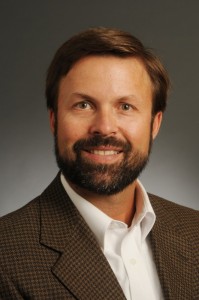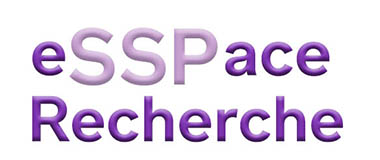Mark Goodale a été nommé professeur ordinaire en anthropologie culturelle et sociale à l’Institut des sciences sociales (ISS) en août 2014. Ses recherches portent sur les relations entre droit – en particulier les droits humains – et formes quotidiennes de vie sociale et politique.
Le Prof. Goodale a accepté de se présenter ici peu de temps après son arrivée des Etats-Unis. Il a donc été convenu qu’il répondrait en anglais à nos questions posées en français.
 Quel est le parcours qui vous a amené à devenir chercheur ?
Quel est le parcours qui vous a amené à devenir chercheur ?
I have always been curious, sometimes too curious for my own good. I realized from an early age that I had an insatiable appetite to learn about complexity—not complexity in the grand sense, but complexity in little, obscure, and ignored ways. To borrow a phrase from Isaiah Berlin, I’m a fox who is endlessly curious about the world of hedgehogs and their systems.
Votre domaine de recherche en une phrase ?
The anthropology of normativity in all of its discontents, cultural forms, and complications. By “normativity” I mean systems of rules, values, laws, imperatives, ideologies, and modes of contemporary discipline that seek to shape social action according to some perspective or belief-system. What I find fascinating is the fact that there are always cracks, always imperfections, always gaps, and that is where the ethnographer’s gaze proves useful.
Et un sujet plus précis en quelques mots ?
Since the mid-1990s, I have been studying the transnationalization and vernacularization of human rights norms as these processes can be observed ethnographically within the spaces of encounter between different groups of actors. Much of this research has been conducted in Latin America (Bolivia), although I have done research on this topic in Romania in the years leading to its accession to the European Union.
Pourquoi ce sujet de recherche ?
Human rights have become a key mode of contemporary world-making. What is fascinating to me is the fact that human rights represent a cosmopolitan alternative, a cosmopolitan hope, and yet the practice of human rights in all of its diversity is often marked by many of the same problems that the idea of human rights was meant to overcome. I want to know why.
Pourquoi être chercheur à la Faculté des SSP de l’UNIL ?
My relocation to SSP and UNIL this year is based on several factors. First, my work is both anthropological and interdisciplinary and I am excited by the way SSP supports both disciplinary and interdisciplinary collaboration. The physical space of Geopolis reflects this integration and I look forward to working with colleagues across the Faculty. Second, I am impressed by the level of support for research, both at UNIL and within Switzerland more generally. Compared to the United States (where I come from), it appears (so far, I have only just begun) that research and education are clear priorities for the Canton and the region. And finally, and perhaps most importantly, I am in the process of launching a major new research project, which we are calling “human rights conflict at the heart of Europe”, that will apply many of the methodologies we’ve developed in the Global South to similar research topics here in Switzerland and across Europe.
Qu’attendez-vous de vos recherches ?
As always, I hope that this research plays at least a small role in what I think of as “first-order conversations” as well as shaping the development of what we are calling “ethical policy-making” regarding vulnerable populations.
Quelles difficultés éprouvez-vous dans le travail de recherche ?
Our research is difficult because as ethnographers we must come face to face with people—government ministers, victims of human rights abuses, anti-immigrant activists, etc.—and ask them difficult questions. It takes a thick skin.
Quels sont les talents cachés qui vous aident à surmonter ces difficultés ?
Hidden talents? Well, I’m not sure this is what you mean, but I can juggle and ride a unicycle, but not at the same time (yet!). Also, as a native Californian who was raised in the freewheeling 1970s, I guess you can say that I’m “laid-back” when it comes to certain problems in life. You are as likely to find me swimming, sailing or skateboarding as reading continental philosophy.
Qui serez-vous dans 10 ans ?
Not in 10 years, but in 20 years, I hope to be a circumnavigator like my hero Bernard Moitessier, somewhere at anchor in the South Pacific, in a protected lagoon, on board something like a Valiant 42 or an Ingrid 38.
